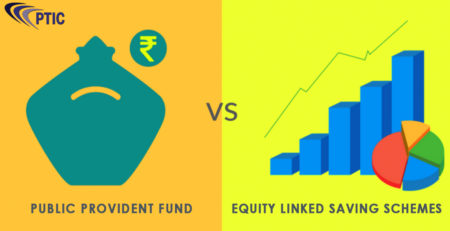Financial tasks you should complete before financial year 2018-19.
The beginning of the Financial Year 2018-19 can be the best time to check out your belongings. Yet, before that, there are few questions we will ask you. Same as the general population, are you leaving tax planning to the last minute and investing in wrong instruments because of the year-end rush? Do you routinely check your portfolio? Are you confirm about your capital gain tax liability? Are you ensure that your bank does not deduct TDS incorrectly on your income? What do you do with your yearly rewards?
There are better approaches to utilize it over wasting it away.
To help you start the financial year in a secure way, we are here to give you a list of financial tasks you should complete before Financial year 2018-19.
1. File your income tax return for previous year before 31 March
According to Income Tax Law in India, every person whose annual income is above Rs. 2.5 lakh is liable to pay Income Tax Return (ITR).
However, in one financial year, you can file income tax returns for previous two financial years. But from the financial year 2018, you have to file the tax return in the assessment year itself. It means that 31 March 2018 is the last date for filing ITR for Financial Year 2015-16 (AY 2016-2017) and 2016-17 (AY 2017-2018). To avoid a penalty of Rs 5000, you have to submit your ITR before 31st March.
For the Financial Year 2017-18, the last date for filing ITR for Individuals is July 31, 2018, and for Businesses, it is September 30, 2018.
2. Check and analyze your investment portfolio:
Starting of the financial year is the best time to invest in stocks. But before that, you should review your portfolio once on a yearly and half-yearly basis. “Financial year starting is the best time to review your portfolio at least once a year,” says Rajeev Sakhuja, CEO at Paar Tax & Investment Consultants Pvt. Ltd. (Financial Planner in Delhi). LTCG (Long Term Capital Gains) is a tax imposes on share-oriented products.
The reintroduction of LTCG is another reason to check your portfolio now. In any case, any type of review doesn’t change anything in your portfolio.
There are few things to review your portfolio step-by-step. First, Check out your asset allocation is correct and equity is doing well in the past few years. Second, you have to see what is working great in your Portfolio. To check this out, you have to review your mutual funds and stock holdings. Sometimes our fund’s performance is not too good, but it doesn’t mean to throw them out. It is a bad idea to exiting a mutual fund on its one-year performance. Find out the reason for underperformance.
3. Start investing in tax-saving schemes:
At the end of the financial year, most people think to invest in Tax-saving schemes. Therefore, sometimes in a rush, they invest in the wrong products such as Traditional Insurance plans or high-cost unit-linked insurance plans etc. At the starting of the financial year, making plans for tax saving can help you to avoid hasty decisions.
First, you have to check out the estimated amount you want to invest in saving tax. Read and understand the Income Tax Section 80C tax-deductible expenses. Once you decide the amount to be invested under Section 80C, fix allocation to equity and debt instruments. For equity investments, starting a SIP (Systematic Investment Plan) in an ELSS fund is the best strategy.
4. Make a plan to invest your yearly rewards:
In India, most salaried individuals get their annual bonuses in the month of March or April. Many individuals work hard to get the yearly bonuses. These bonuses treated as a deferred salary, not as a free money. They spend this annual bonus money impulsively. There are only a few people, who have a plan to invest this money. Though, there is no step by step plans but some ways to utilize the bonuses. First pay off your debts, loans and credit card bills etc. The rest you can utilize in other things. But if you have long-term objectives, you can save this money as reserve funds.
5. Submit Forms 15G and 15H to avoid TDS (Tax Deduction at Source):
TDS or Tax Deducted at Source is a type of tax (under Income Tax) deducted from the account of individuals on a fixed interval. For Fixed and Recurring Deposit Investors, TDS is a major worry. If your total earned interest is more than 10,000 in a year, Bank will deduct TDS. The only way to avoid TDS is to submit Form 15G or 15H on time. Form 15G is for those who are below 60 and 15H is for senior citizens.
You need to be careful when you submit 15G and 15H forms. If you are not eligible to file 15G and 15H forms and illegally file it. The Income Tax Department has the right to take action against you. The government has provided a big relief to senior citizens in its latest Budget, raising taxfree interest from Rs 10,000 to Rs 50,000. So, senior citizens earning interest up to Rs 50,000 can submit Form 15H and avoid TDS. Note that this new Rs 50,000 limit under Section 80TTB is for deposits across all banks and post offices.









